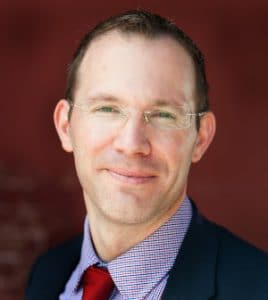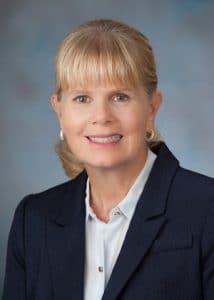Sport psychology: Promoting performance & protecting health
The study of sports psychology can be traced to 1925 when Coleman Griffith founded the first American sports laboratory at the University of Illinois, which operated until 1932. Since those early days, the specialty of sport psychology has evolved, involving a significant amount of research, theoretical study, and specialized knowledge.
According to John P. Sullivan, Psy.D, a sport psychologist embraces three important roles: practitioner, educator, and researcher. “All three inform each other and increase sensitivity to how to intervene in an effective way,” he said.
As a sports scientist and clinical psychologist, Sullivan has worked with Olympic national teams and several national and international professional sports teams, including the New England Patriots.
He has also applied his psychological expertise and insight to the U.S. elite military, NASA and domestic and international law enforcement agencies. Additionally, he consults with several college teams and is a member of a concussion rehabilitation team.
Sullivan said that performance comes not from mental toughness and grit, which are not well defined, but rather from the brain. He uses neurological resilience tools and teaches individuals to self-manage. “The ‘brain first’ perspective is critical to performer advantage and protection,” he said.
According to Sullivan, most people think of sport psychology as a one-on-one interaction, that sport psychologists are engaged only when something is not working correctly. “That perception is common, but not accurate,” he said.
Rather, sport psychology focuses on facilitating and maintaining skills and protecting the health of an athlete, but also involve coaches, who are performers too.
“You have to address the health of those who support the athletes,” Sullivan said. “Olympic coaches and support staff don’t get medals, but they still need support.”
For Sullivan, the rewards of this profession come from working closely with and gaining the trust of the athlete.
“It’s exceedingly exciting to [see the athlete] meet goals after struggling,” he said. He sees sport as a “classroom of experiential learning.”

Miriam Rowan, Psy.D, is a clinical psychologist at McLean Hospital, private practitioner in Cambridge, MA, and a former elite professional ballet dancer.
“A sport psychologist helps with personal development, working with individuals to transfer skills to other environments.”
Miriam Rowan, Psy.D, clinical psychologist at McLean Hospital, private practitioner in Cambridge, MA, and former elite professional ballet dancer, works with a range of individuals, including “artistic” and aspiring athletes.
Rowan uses dialectical behavior therapy (DBT) skills to help athletes regulate emotions; she focuses on the cognitive and affective bases of behavior in athletic performance. Techniques include identifying sensations in the body and labeling associated emotions.
She focuses on strategies for optimizing the parasympathetic sympathetic nervous system, allowing the athlete sufficient rest, activating the sympathetic nervous system, enabling the athlete to “bounce back into an alert, focused physiological state.”
She said, “There is a mind-body connection.”
Regardless of athletic level, issues of fear and balance are common, particularly concerns about investing time without gaining notable achievement. For instance, she treats “adolescents at a crucial juncture” in their training.
“This may involve consultation to the parents so they may better guide their child in clarifying his or her goals,” she said. She helps all athletes build a lifestyle and schedule that creates balance and goals to reach their athletic potential.
Additionally, those who exit a sport because of injury, graduation, entry into the workforce or for some other reason may feel a loss of identity, according to Rowan.
These individuals need time to process what has happened, she said. “They are leaving a distinct community and lifestyle based on physicality…and have to create new goals, find new physical outlets and find what motivates them beyond their athletic pursuit.”
Developmentally, individuals between the ages of 18 to 24 experience the most significant quantity and quality of changes in life, according to Dave Botsford, Psy.D, intercollegiate athletic liaison and sports psychologist at the University of California Santa Barbara.
Botsford finds that adjustment issues result during transition from high school, junior college or another academic institution to UCSB. He noted that trauma related to injury, childhood events, interpersonal violence, physical and/or sexual assault and mood disorders are common presenting issues.
In his work with more than 450 student athletes and several team coaches, Botsford uses cognitive behavioral therapy (CBT), acceptance and commitment therapy (ACT), and mindfulness.
He integrates his clinical training with cognitive based mental skills and imagery to build confidence and help the athlete feel grounded and less reactive.
“I try to create awareness of physical and cognitive abilities as it builds to have deliberate intervention to use in the moment and turn down intensity,” he said.
A former college soccer player and competitive swimmer and snowboarder, Botsford reported that he had “always been interested in formulas that contribute to optimal performance.”
Before entering the field of sports psychology, he obtained his doctorate in clinical psychology, but also worked with a mentor to enrich the “performance side” of his knowledge.
Botsford noted that this field offers several different career tracks. Aspiring sport psychologists should examine which path is best, complete the formal coursework and find a mentor. Who you want to work with will dictate how much training you’ll need, he said.
Sheryl Smith, Ph.D, BCB, CMPC, private practitioner in Cheshire, CT, draws upon psychodynamic and social learning approaches with the athletes she treats. Covering the continuum that includes performance restoration and performance enhancement, she also uses biofeedback and brings her knowledge of exercise science and more specific psychology principles to her practice.
Whether she is working with an individual, a coach or team, Smith tries to create an environment that fosters leadership and “followship” and communication around shared values.
Smith noted that the problems and psychological principles are largely the same for all sports, although the context may be different. “You need to find out where the pressure point is,” she said.
For instance, a golfer carries pressure with every stroke; a 200-yard drive can be undone by a missed putt. “The mental pressure is long and chronic, whereas in wrestling or fencing the reaction is immediate,” she said.
Working with athletes of different ages can present a challenge, according to Smith. The therapist must be aware of mental development and vocabulary. These individuals may also be in different stages of a learning curve of the sport so Smith uses different interventions. “You have to know and understand the age limitations,” she said.
Sports psychologists have several options regarding settings in which to practice. Rowan indicated that some have outpatient private practices; others may be embedded in a hospital system, work in a college athletic program or counseling center.
Some act as behind-the-scenes consultants with an opportunity to work with teams, organizations and other medical providers on distinct mental health performance needs of athletes.


